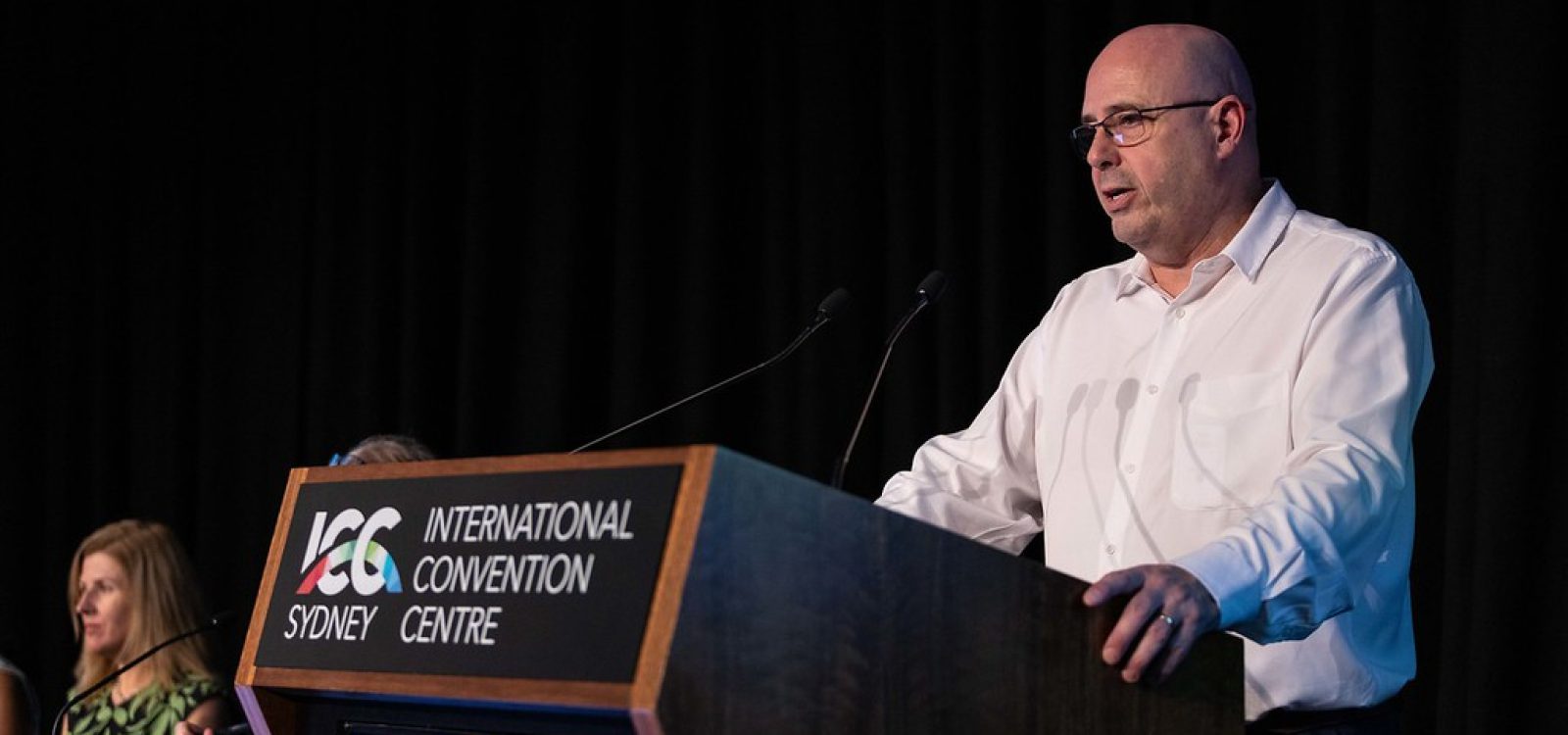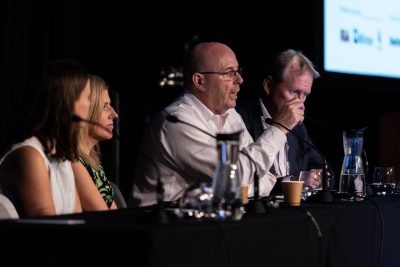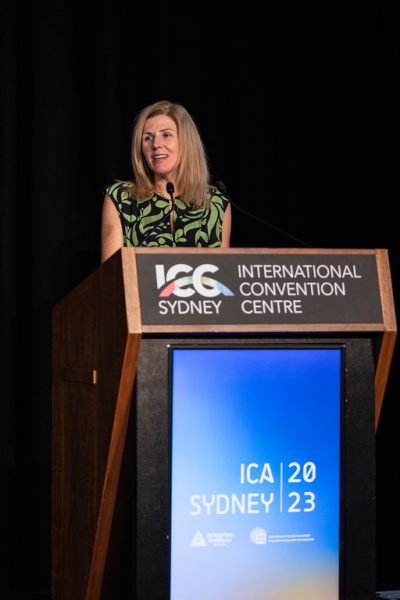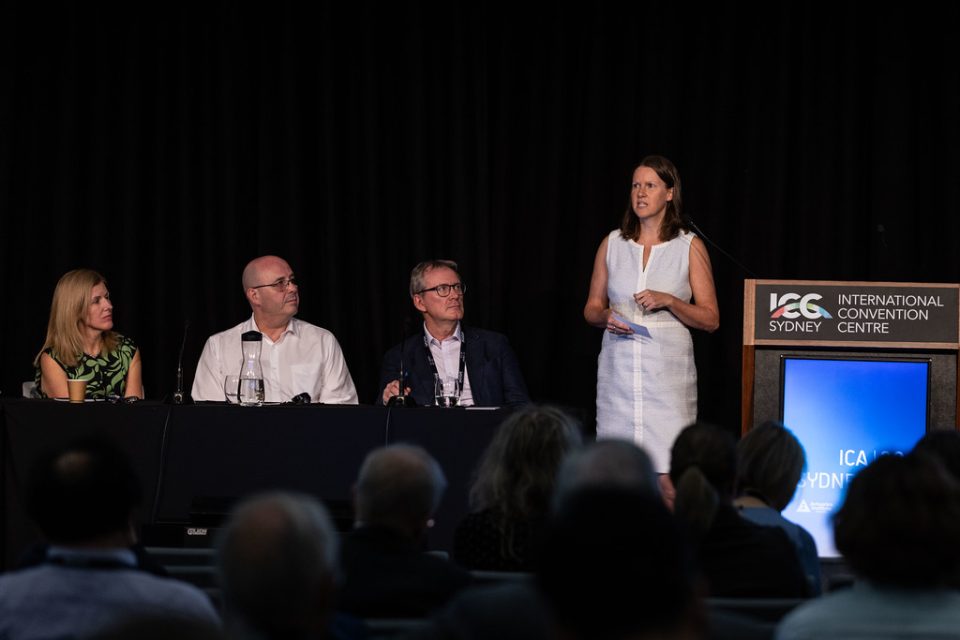
What does the future hold for actuarial education?
While our presenters – Clifford Friend from the Institute and Faculty of Actuaries (IFoA); Mike Callan, Georgina Hemmings and Amanda Aitken from the Actuaries Institute Australia (AIA); and Henning Wergen from Deutsche Aktuarvereinigung e.V. (DAV) – focused on different topics, there were recurring underlying themes.
These themes were about the need to adapt our education to meet the changing environment, supporting a career-long learning culture, and understanding and responding to the impact advancements of AI and data science on the actuarial profession. Underpinning all of this was a question regarding the essence of an actuary now and in the future. Who are we? And how do we ensure agility and success in a data-driven world?
Adapting our education offerings
From the UK, Clifford discussed how the IFoA as an association continues to help build successful and sustainable careers for their members, equipping them to adapt to changing circumstances. After extensive research they are working to make sure their education is agile, accessible, contemporary, and builds competencies beyond technical knowledge.
Looking at their education as wholistic and evolving, the IFoA want to think end-to-end about their members learning. Clifford referred to it as “an arc of learning” from first engagement to qualification as an actuary, to providing reskilling opportunities through their members career. This will be achieved by creating a dynamic learning portfolio, where the intention is to develop and refresh the offerings as new requirements emerge.

In Australia, Mike from the AIA spoke to the history of actuarial education, our current environment and how the introduction of the philosophy that “a well-prepared student should pass.” This philosophy has driven the reimagined education program and culture shift. Georgina delved deeper into their student-centred approach to education with dedicated educators delivering the curriculum. She explained how the Chief Examiner’s role is crucial to this as it designs, manages, and delivers the end-to-end process for their subject which is delivered in a virtual university through Canvas. Highlighting the review process and governance in place demonstrated how the Institute delivers current and industry-relevant subjects and maintains quality and standards in all assessments.
Henning Wergen, whilst providing a history of the DAV in Germany, explained how the strategy for the future led to evolutionary changes in the qualification system. DAV’s future agenda includes a commitment to ensure their actuary credential retained its value and characteristic and making requirements for acquiring the title and membership more flexible. In education, this led to broadening the admission criteria to attract graduates from disciplines beyond mathematics and streamlining the study and examination process throughout the basic actuarial knowledge part (eight subjects) and specialist knowledge part (two subjects) where students to build their domain knowledge. This restructuring also led to a reduction in examinations from ten to eight.
Career-long learning

Boldly Clifford called out that the profession as not a truly ‘learning’ profession. He cited many reasons, one being due to our focus on qualification and regulatory compliance rather than reflective practice. In contradiction, their research also showed that their members place great value on reskilling, career planning and keeping up to date. How do we meet members needs in the career development/upskilling space whilst shifting the culture from focusing on qualifications? Bring on the need to develop a growth mindset and become a ’learning’ profession with a culture of career-long learning and reframing education to be wholistic. One way the IFoA plans to achieve this is by focusing on post-qualification offerings.
Mike introduced the AIA’s developments to support member’s career-long learning. To date this has included supporting member-curated CPD, like their IFRS-17 course, and introducing microcredentials to help qualified actuaries to upskill or refresh knowledge of the latest regulations and techniques. The microcredentials are repackaged Fellowship Applications subjects, with certificate levels based on the level of engagement and assessment of interest.
Our future with data science
In IFoA research, members stated that associations don’t need to be expert in everything. Clifford said, “they can act as ‘sign posters’ to trusted sources of knowledge and learning”. For the IFoA this is the case regarding their data science education. Clifford spoke about the use of partners to deliver off-the-shelf training for members. For data science, their certificate in data science is co-credentialled and delivered through a partnership with Southampton Data Science Academy. This provides members with opportunities to build their data science capabilities and keeps the IFoA focused on their actuarial education.

Amanda Aitken introduced the AIA’s curriculum evolution to include data science into the qualification training through the Data Science Principles and Data Science Applications (DSA) subjects. The demand of the DSA elective has been high, with 57% electing to complete it as their capstone subject. This elective broke the mould, moving from an industry-based subject to a skills-based subject which covers topics relating to the business environment, modelling applications, and implementing change.
A couple of years ago, the DAV had discussions around who they are – their knowledge, skillset, and the domains they work in. There was also huge uncertainty about data scientists and whether they would replace us. This uncertainty drove discussions around change with the DAV Board setting out to shape the DAV future agenda. Focusing on qualifications, the priority was integrating new knowledge and new methods. With the desire to integrate new knowledge, the proposal was to introduce a new non-actuarial membership category for data scientists. Years of engagement with the membership began positively with interest in expanding membership for data scientists and whilst the DAV felt there was consensus, when the time came there was no instruction to create an additional membership category. There is however the goal to expand contact to external stakeholders to integrate knowledge into the profession, into future internal discussions, and in topics where actuaries should play a role.
Concluding thoughts
This session was all about the evolution of education practices, including awareness of the external factors that require us to be agile and adapt to meet changing needs. The importance of understanding our connection to and our relationship with data science is important in carving out our future.
In Henning’s words, “changes are evolutionary, not revolutionary”. Understanding our long history of qualification education, which Mike walked us through, you can see the need to be sensitive to our past whilst embracing our future. With these associations allocating time and effort to understand our future needs and implementing changes, including expanding their education offerings, it feels like they’re providing actuaries with the skills required to succeed today and tomorrow.
CPD: Actuaries Institute Members can claim two CPD points for every hour of reading articles on Actuaries Digital.






